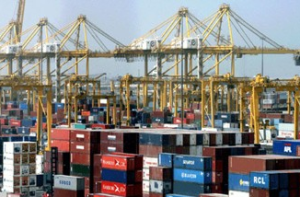
One of the critical points that have been made over time is that the maritime sector has the potential to lift Nigeria out of recession if given the required attention. In describing the role of government incursion in the industry, critics have painted a picture of the proverbial muzzling of the ox that threads the corn.
Over time, the sector has seen more of “outsiders” as heads of agencies, prodded by politicians who make or influence appointments to serve their selfish desires rather than appointing core professionals who possess requisite knowledge and experience.
While private operators and investors have gone the extra mile to prove that Nigeria could have the best port model in the world, the government is yet to take up the gauntlet by tying loose ends. Politicians have rather hijacked the process, sometimes making appointments on the basis of cronyism at the expense of procedural rules and enabling acts. Yet the world watches with bated breath, expecting the government to take advantage of its vast natural resource to turn around the economy of the country.
The maritime industry is international in nature and is acknowledged to be a very dynamic component in the socio-economic configuration of a maritime nation. One major problem that has continued to plague the industry in Nigeria is the issue of inadequate policy formulation and implementation, hence the contribution of shipping trade to economic growth has therefore being a subject of debate.
In traditional maritime nations such as the United States of America, the United Kingdom and a few other European countries, the factors of time, power planning, coordination and implementation of clear-cut policies through government intervention largely account for the enviable levels of efficiency, sophistication and monumental success in their maritime activities especially in respect of the sector’s contribution to economic growth.
The reverse appears to be the case in Nigeria as the fortunes of the industry have continued to suffer progressive catastrophe over the years. A very near example is the Nigerian National Shipping Line (NNSL), which took delivery of 19 new vessels from European shipyards in 1979 and 1980, only to lose all in less than a decade and even liquidated altogether. The demise of NNSL has been traced to mismanagement and political interference.
The maritime industry on a global level provides a throng of opportunities for investment. It has served to stimulate import and export trade by way of providing surface transport through which goods are moved by sea on a massive scale.
Since the arrival of the Portuguese explorers at the Benin River in 1485, trading contact by sea had been established between Europe and the West African sub-region, especially Nigeria. Since then, the maritime trade has played a major role in Nigeria’s economic development. Besides, it has also acted as a cardinal force in Nigeria’s attempt to correct her trade imbalances with the industrialized nations of the world. Since becoming a signatory to the United Nations Conference on Trade and Development (UNCTAD) code for liner conferences in 1975, a number of bilateral and multilateral maritime agreements have been entered into by the Nigerian government and this, to a large extent, has provided the support and policy framework for the movement of cargo in and out of Nigeria.
Maritime business has helped the process of diversification of Nigeria’s economy and has continued to provide employment opportunities to Nigerians in the areas of seafaring, shipping agency, port operation, haulage and freight forwarding among several others.
The importance of the maritime trade demands that government changes its rent-seeking posture towards the sector. Appointments should be based on professionalism and merit rather than political considerations, otherwise the sector will continue to find it difficult to make the desired impact on the economy.